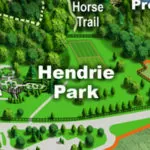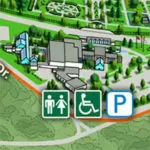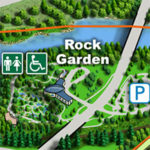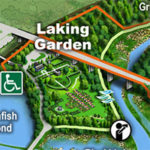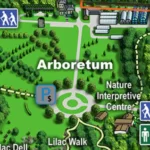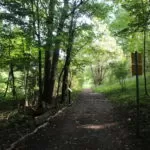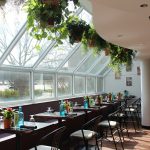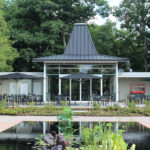| Membership | Price (+HST) |
|---|---|
| Single | $85/year |
| Single Plus | $120/year |
| Family | $130/year |
| Family Plus | $175/year |
| Contributing | $300/year |
| Supporting | $600/year |
| Sustaining | $1,000/year |
| Benefactor's Circle | $2,500/year |
| Director's Circle | $5,000/year |
| President's Circle | $10,000/year |
Protecting Species at Risk
By Tys Theysmeyer, Senior Director Ecosystems Stewardship Program
As you walk through our lands, you’ll hear the symphony of nature reminding us of the incredible diversity of life in our region and the delicate balance that maintains it. This connection to nature is a cherished gift we share with our community, and it’s one we must strive to protect.
Today, countless species struggle to survive. Each at-risk species tells a story of our rapidly changing world, and while they cannot speak for themselves, you can help be their voice. Your support is crucial in preserving the lands that these species call home, ensuring that future generations can experience the rich diversity of our ecosystems.
Summer Flooding
This summer, heavy rains flooded our streets, homes, and workplaces, and our nature sanctuaries were not spared. These floods overwhelmed habitats, shut down trails, and caused significant damage to areas like Hendrie Valley and Cootes Paradise Marsh, where dedicated efforts to restore balance are now urgently needed.
Our team has been working tirelessly to repair the damage but there is still much to do. The Hendrie Valley Carp barrier was over-topped, allowing Carp into the marshes of Grindstone Creek, creating a mess that still requires concentrated effort to repair.
Our Fishway barrier barely survived, with staff working tirelessly to manage more than 10,000 pounds of debris and mitigate the damage to the barrier. We just couldn’t stop Carp from entering into Cootes Paradise Marsh.
Cootes Paradise Marsh, which was in its best state since the 1930s, is now in a recovery phase. Clear marsh waters turned muddy brown, killing off nearly all aquatic plants; thankfully, the resilient reeds and most waterlilies have survived.
These are just a few examples of the challenges we face in today’s changing world as we try to protect the species that call our lands home.
At RBG, we dedicate 20% of our natural lands as special protection areas, undisturbed by human impact, to safeguard the 50 species at risk that reside here.
The Species at Risk
The following is an example list of species at risk seen at RBG within the last three years:
Endangered
- American Eel
- Golden Eagle
- Monarch
- Lilliput
- American Chestnut
- American Columbo
- Butternut
- Eastern Flowering Dogwood
- Few-flowered Club-rush
- Red Mulberry
- Blanding’s turtle
Threatened:
- American White Pelican
- Bank Swallow
- Barn Swallow
- Black Ash
- Bobolink
- Canada Warbler
- Chimney Swift
- Common Nighthawk
- Eastern Meadowlark
- Eastern Whip-poor-will
- Fern-leaved Yellow False Foxglove
- Golden-winged Warbler
- Least Bittern
- Lesser Yellowlegs
- Olive-sided Flycatcher
- Red-headed Woodpecker
- Wood Thrush
Species of Concern:
- Bald Eagle
- Eastern Milksnake
- Eastern Pondmussel
- Eastern Wood-Pewee
- Evening Grosbeak
- Horned Grebe
- Mapleleaf Mussel
- Midland Painted Turtle
- Northern Map Turtle
- Peregrine Falcon (anatum/tundrius subspecies)
- Rusty Blackbird
- Snapping Turtle
- Yellow-banded Bumblebee
How to Help
Our community has always rallied together in times of need, and your support has never been more critical. With your help, we can continue to protect the species at risk, restore habitats, and create a future where both wildlife and people thrive.
Will you help us preserve and restore these vital habitats by donating today?
RBG is a designated Important Area for Reptiles and Amphibians (IMPARA), and we have received national recognition for the value of our nature sanctuaries as habitats for vulnerable species. Our work involves restoring viable habitat areas and addressing challenges such as urban development, road mortality, and extreme weather events that impact and destroy their homes.
Today, you have the power to become a hero for wildlife and nature and help us preserve habitats and protect species at risk.
The extreme weather of the past summer has impacted us all, but by contributing to our conservation initiatives, you will help safeguard critical habitats, help restore endangered populations, and combat pressing environmental challenges, ensuring our lands continue to be a refuge for species at risk.
Together, we can create a world where both wildlife and people thrive.
Support Royal Botanical Gardens
Donate to the ongoing work of protecting species at risk.

